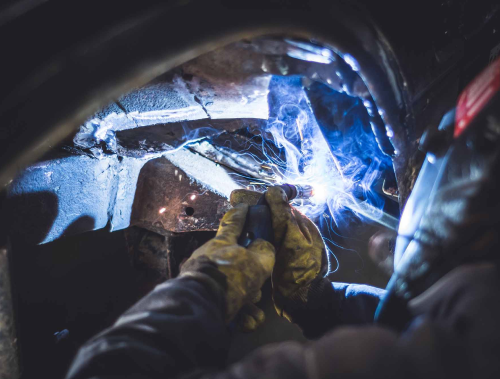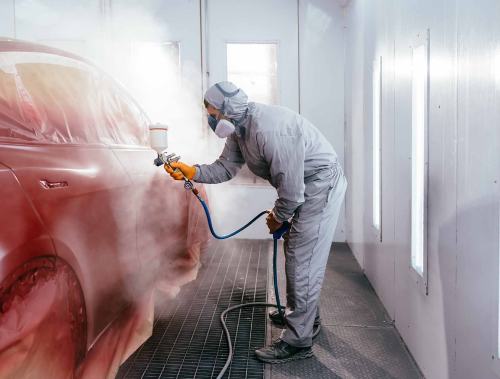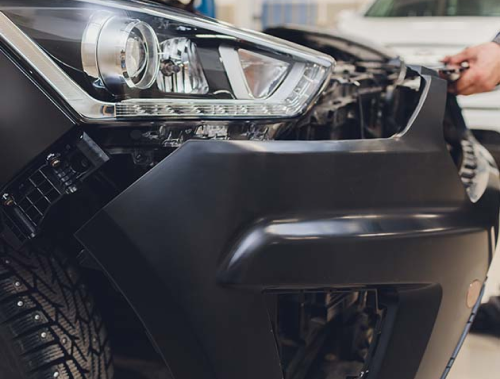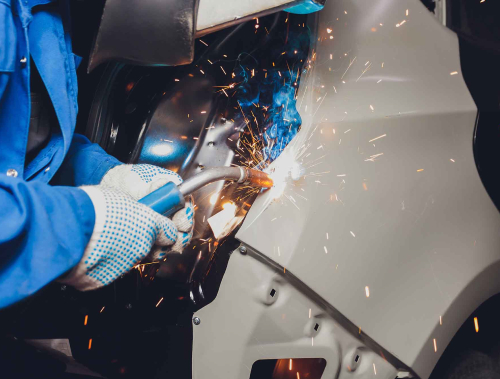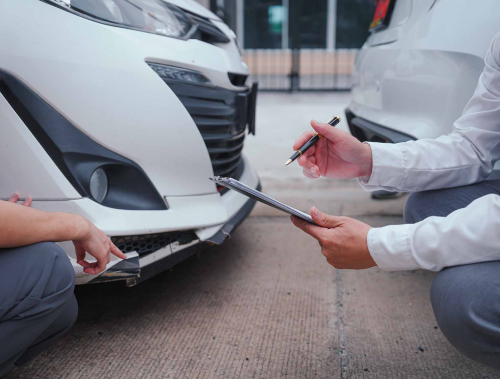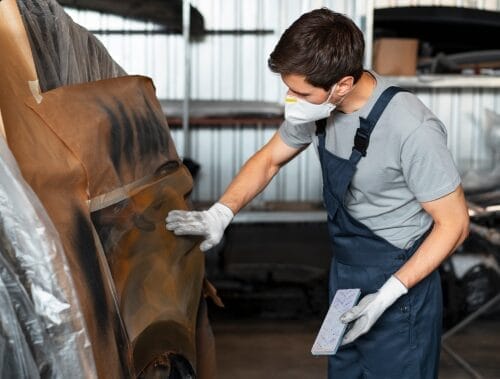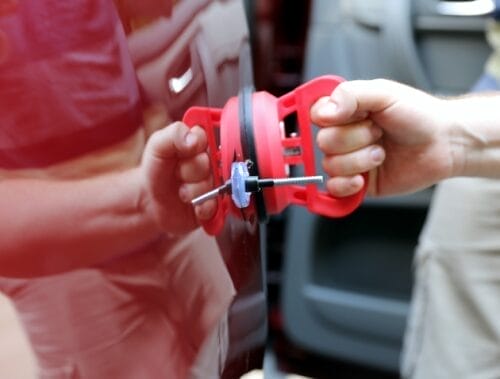Choosing the right auto body shop is crucial for ensuring your vehicle receives high-quality repairs, maintains its value, and remains safe to drive. With numerous shops available, making the right choice can be overwhelming. This guide aims to simplify the process by highlighting key factors to consider, ensuring you select a reputable and qualified auto body shop that meets your needs.
Factors to Consider
Reputation
A shop’s reputation is a strong indicator of the quality of service you can expect. A well-regarded shop often has a track record of satisfied customers and reliable service.
To gauge a shop’s reputation, start by reading online reviews on platforms like Google, Yelp, and the Better Business Bureau (BBB). Look for consistent positive feedback and note any recurring issues mentioned in negative reviews. Testimonials on the shop’s website can also provide insights, though they are usually more favorable.
Word-of-mouth recommendations from trusted friends and family members can be invaluable. They can offer firsthand experiences and honest opinions about the shops they have used, helping you narrow down your options.
Certifications
Certifications from recognized industry organizations, such as I-CAR (Inter-Industry Conference on Auto Collision Repair) and ASE (Automotive Service Excellence), indicate that the shop meets high standards of training and expertise.
Certified technicians are trained to handle complex repairs and are knowledgeable about the latest techniques and technologies in auto repair. This expertise ensures that repairs are done correctly and safely.
Certifications reflect a commitment to ongoing education and adherence to industry standards, which often translates to higher quality work and better outcomes for your vehicle.
Experience
Experience matters in the auto body repair industry. Shops that have been in business for many years have likely encountered a wide range of repair scenarios and have honed their skills over time.
Investigate the shop’s history and track record by asking how long they have been in business and inquiring about their experience with your specific make and model of vehicle. This information can give you confidence in their ability to handle your repair needs.
Some shops specialize in certain makes and models, which can be advantageous if you own a less common or high-end vehicle. Specialized experience ensures that the technicians are familiar with the unique aspects of your vehicle and can perform repairs with precision.
Getting Estimates
Multiple Estimates
Obtaining estimates from multiple shops allows you to compare prices and services, ensuring you get a fair deal. It also helps you avoid being overcharged and gives you a sense of the average cost for the necessary repairs.
When comparing estimates, don’t just look at the bottom line. Consider what is included in each estimate, such as parts, labor, and any additional services. A lower price may indicate the use of inferior parts or less comprehensive service, while a higher price might reflect better quality materials and workmanship.
Written Estimates
A written estimate provides a clear and detailed account of the work to be performed and the associated costs. This documentation protects you from unexpected charges and ensures that both parties have a mutual understanding of the scope of work.
A comprehensive estimate should include:
- A detailed description of the repairs needed
- A breakdown of parts and labor costs
- The type of parts to be used (OEM vs. aftermarket)
- Estimated completion time
- Any warranties or guarantees
By considering these factors, you can make an informed decision when choosing an auto body shop, ensuring your vehicle receives the best possible care and you get the most value for your money.
Types of Warranties
Auto body shops may offer several types of warranties, including:
- Lifetime Warranty: Covers the repairs for as long as you own the vehicle.
- Limited Warranty: Covers specific parts or labor for a defined period, such as one year or 12,000 miles.
- Paint Warranty: Specifically covers the paint job, ensuring it doesn’t fade, peel, or crack within a specified time frame.
When evaluating a warranty, consider:
- Duration: How long the warranty lasts. A longer warranty generally indicates confidence in the quality of work.
- Coverage: What is included in the warranty. Ensure it covers parts, labor, and specific aspects like paint and structural repairs.
- Conditions: Any conditions that may void the warranty, such as not following maintenance guidelines.
Importance of Warranty
A solid warranty provides peace of mind and financial protection. It ensures that if something goes wrong with the repair, the shop will fix it without additional cost to you, safeguarding your investment in the vehicle.
To fully understand the warranty, ask:
- What is covered and for how long?
- Are there any conditions or exclusions?
- What happens if I move or the shop closes?
- Is the warranty transferable if I sell the car?
Customer Service
Clear communication ensures you understand the repair process, the timeline, and the costs involved. It helps build trust and reduces the likelihood of misunderstandings or disputes.
Evaluate customer service by considering:
- Responsiveness: How quickly and thoroughly they answer your questions.
- Professionalism: The demeanor and attitude of the staff.
- Clarity: How well they explain technical details and keep you updated throughout the repair process.
Rental Car Availability
Having access to a rental car or loaner vehicle can be a significant convenience while your car is in the shop. It minimizes disruption to your daily routine and ensures you remain mobile.
Offering rental cars or loaner vehicles demonstrates the shop’s commitment to customer service. It reduces the hassle of arranging alternative transportation and helps you get back on the road quickly.
Finalizing Your Decision
Investigate any complaints by checking:
- Better Business Bureau (BBB): Look for the shop’s rating and any customer complaints.
- Online Reviews: Read reviews on sites like Google and Yelp.
- State Consumer Protection Agency: Check for any filed complaints.
Visiting the Shop
A personal visit allows you to assess the shop’s facilities, cleanliness, and professionalism. It provides an opportunity to meet the staff and get a feel for their operations.
During your visit, observe:
- Cleanliness: A tidy, well-organized shop indicates attention to detail.
- Professionalism: Friendly, knowledgeable staff who are willing to answer your questions.
- Equipment: Modern, well-maintained equipment that suggests up-to-date repair techniques.
Asking the Right Questions
Before finalizing your decision, ask:
- What certifications do your technicians hold?
- Can you provide a detailed, written estimate?
- What type of parts will be used (OEM or aftermarket)?
- What is your warranty policy?
- Do you offer rental or loaner cars?
Make sure all your questions are answered satisfactorily. A reputable shop will be transparent and willing to address any concerns you may have.
Conclusion
Choosing the right auto body shop involves considering several factors: reputation, certifications, experience, getting detailed estimates, understanding warranties, and evaluating customer service.
Taking the time to research and evaluate your options will ensure you select a shop that provides high-quality repairs and excellent customer service, giving you peace of mind and protecting your vehicle’s value.

